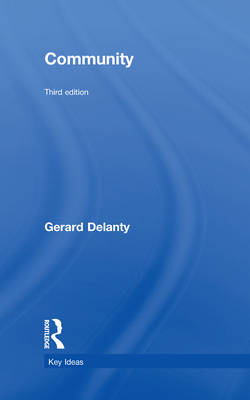
- Afhalen na 1 uur in een winkel met voorraad
- Gratis thuislevering in België vanaf € 30
- Ruim aanbod met 7 miljoen producten
- Afhalen na 1 uur in een winkel met voorraad
- Gratis thuislevering in België vanaf € 30
- Ruim aanbod met 7 miljoen producten
Omschrijving
The increasing atomization of modern society has been accompanied by an enduring nostalgia for the idea of community as a source of security and belonging in an increasingly insecure world. Far from disappearing, community has been revived by transnationalism and by new kinds of individualism. Gerard Delanty begins this stimulating critical introduction to the concept with an analysis of the origins of the idea of community in Western utopian thought, and as a theme in classical sociology and anthropology. He goes on to chart the resurgence of the idea within communitarian thought and postmodern philosophies, the complications and critiques of multiculturalism, and new manifestations of community within a society where changing modes of communication produce both fragmentation and possibilities of new social bonds. Contemporary community, he argues, is essentially a communication community based on belonging and sharing, and can be a powerful voice of political opposition. The communities of today are less spatially bounded than those of the past, but they cannot dispense with the need for a sense of belonging. The communicative ties and cultural structures of contemporary societies have opened up numerous possibilities for belonging based on religion, nationalism, ethnicity, lifestyle and gender.
Specificaties
Betrokkenen
- Auteur(s):
- Uitgeverij:
Inhoud
- Aantal bladzijden:
- 252
- Taal:
- Engels
- Reeks:
Eigenschappen
- Productcode (EAN):
- 9781138068124
- Verschijningsdatum:
- 29/03/2018
- Uitvoering:
- Hardcover
- Formaat:
- Genaaid
- Afmetingen:
- 129 mm x 198 mm
- Gewicht:
- 639 g

Alleen bij Standaard Boekhandel
Beoordelingen
We publiceren alleen reviews die voldoen aan de voorwaarden voor reviews. Bekijk onze voorwaarden voor reviews.











